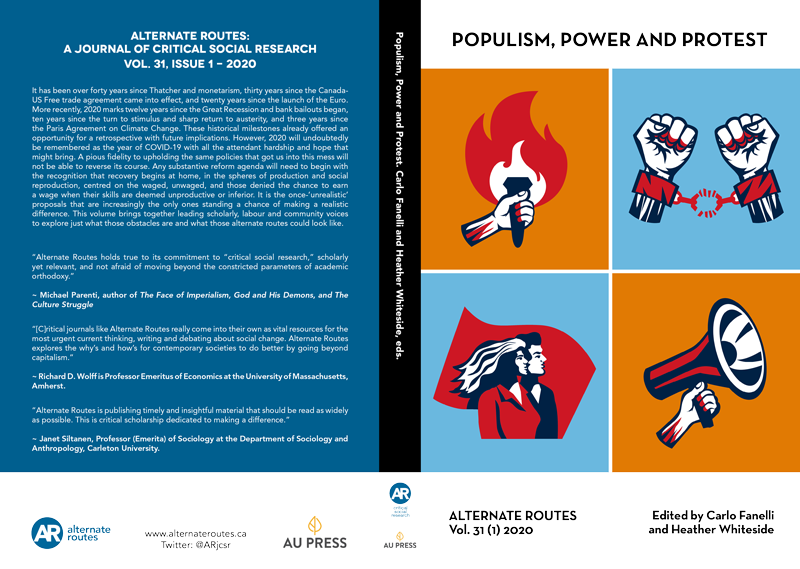The Globalization Project in Crisis
Abstract
The Globalization Project is in crisis – evidenced by deepening inequality, widespread civil unrest (including anti-immigrant and ethnic hostilities), a compromised WTO,
and spreading bilateralism. Economies and environments are destabilized and deteriorating, as the deceptions and complicities of market rule are revealed. In this moment of international disorder, with failing US leadership, EU weakening, and Russian strengthening, China appears poised to assume a growing political-economic dominance across the world. Its recent history can be viewed as strategic manipulation of global neoliberal relations via a combination of short- and long-game maneuvres, anchored in a powerful neo-mercantilist model that resonates with rising national protectionism.
Downloads
Published
How to Cite
Issue
Section
License
Articles are published in Alternate Routes: A Journal of Critical Social Research under the Creative Commons "Attribution/Non-Commercial/No Derivative Works" Canada licence.
The copyright for the articles published in this journal is retained by the authors, with first publication rights granted to the journal. By virtue of their appearance in this open access journal, articles may be used, with proper attribution, in educational and other non-commercial, not-for-profit settings. The submission of a manuscript to Alternate Routes will be taken to mean that the author understands and agrees to the following:
- the manuscript represents original work not previously published;
- the manuscript is not being considered elsewhere for publication in the same language (publication elsewhere in an alternate language does not preclude acceptance of submission to Alternate Routes);
- appropriate written copyright permissions have been secured for republication of any copyrighted material contained in the manuscript;
- copyright for this article is retained by the author, with first publication rights granted to Alternate Routes;
- by virtue of its appearance in this open access journal, it is understood that the article is freely available for use, with proper attribution, for educational and other non-commercial purposes;
- reuse of the article for commercial purposes by anyone other than the author requires permission of the author;
- the author agrees to cite Alternate Routes as a source whenever h/she later republishes or reuses the article in other platforms.


